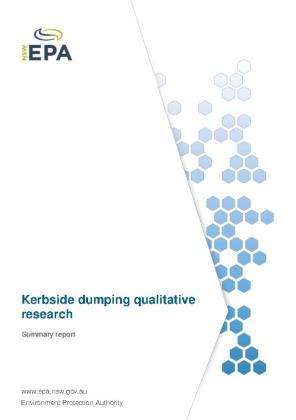What is illegal dumping?
Illegal dumping is the disposal of waste larger than litter on land or in water without the correct approvals (an environment protection licence or planning approvals).
Illegal dumping can include
- placing unwanted household items on the footpath when there is no council collection
- dumping rubbish or green waste in the bush or on the side of a road
- businesses or contractors who are paid to correctly dispose of commercial waste but instead dump it on land without proper approvals
- dumping asbestos waste
Why is illegal dumping a problem?
Illegal dumping can
- harm human health
- contaminate the environment and soil, and poison plants and animals
- smother native vegetation
- introduce weeds into sensitive bushland
- pollute waterways
- degrade culturally sensitive environments
- make public places dangerous to use
- create a fire risk and endanger people’s lives by blocking emergency access
- degrade land value
- cost millions of dollars in taxpayer money each year to clean up
- undermine legitimate businesses
EPA research into illegal dumping in NSW
The EPA has published state-wide research on what motivates businesses and the community to illegally dump and how to change that behaviour. The research was conducted with government, industry and community stakeholders and provides a state-wide benchmark for monitoring changes in knowledge, attitudes and behaviours.
Read the
- Illegal dumping research report 2019 (PDF 4.8MB)
- Illegal dumping research report summary 2019 (PDF 904KB)
- Illegal dumping research report 2014 (PDF 301KB)
- Illegal dumping research report summary 2014 (PDF 1.9MB)
Kerbside dumping research
Waste dumped on the kerb is the most common type of illegal dumping in NSW. This waste can
- pollute the environment
- make streets unsafe and unattractive
- place a financial burden on local government
The EPA conducted social research with residents, councils, real estate agents and strata managers to
- identify what motivates people to dump on the kerb
- find strategies to change this behaviour
This research will inform other programs to prevent and reduce this type of dumping.




